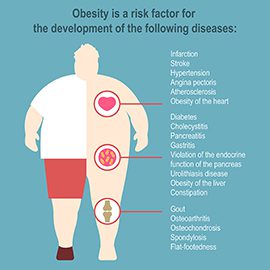Hello, everyone. Today, we’re going to talk about a topic that affects a lot of people: weight loss.
Specifically, we’re going to address the question: why is it impossible for some to lose weight, no matter how much they try?
Firstly, let’s acknowledge that weight loss is often marketed as an achievable goal – just eat less and move more, right? Unfortunately, for many people, it’s not that simple.
Numerous studies have shown that weight loss can be incredibly difficult to achieve and sustain, with factors like genetics, psychology, and physiology working against them.
Psychologically speaking, attempts at losing weight can often backfire. When we promise ourselves that we will avoid certain foods, like carbs or sugar, we often end up craving them more.
Or worse, giving in to our cravings and ending up in a binge-eating cycle. Psychologists call this the “what-the-hell effect” or “false-hope syndrome”.
This occurs when we have unrealistic expectations of ourselves and our abilities to stick to a strict diet or exercise plan.
As soon as we give in to one temptation, we throw in the towel and indulge in every unhealthy option available.
This negative mindset can cause a lot of guilt and shame, making it even harder to stick to our health goals in the future.
To avoid this, it’s essential to set realistic expectations for ourselves and allow room for indulgence in moderation.
By changing our mindset from all-or-nothing to progress over perfection, we can avoid the false-hope syndrome and keep moving towards a healthier lifestyle.
When we try to restrict ourselves too much, we rebel and overindulge.

Physiologically speaking, some people’s bodies are programmed to retain weight more effectively than others.
Genetics plays a huge role in how our bodies respond to weight and body composition changes.
Some people have a higher metabolism, while others burn fewer calories even when they exercise regularly. Hormones can also play a role, especially in women.
Moreover, attempts to lose weight can sometimes backfire and cause weight gain.
A “weight cycling” phenomenon can occur when you lose weight and then regain it repeatedly. This cycle can make it increasingly difficult to lose weight over time, and can even lead to weight gain and increased body fat.
In conclusion, there are a multitude of factors that make losing weight difficult for some people. It’s not as simple as just eating less and moving more.
Ultimately, it’s important to focus on physically and mentally sustainable habits.
If you’re struggling to lose weight, seek guidance from a healthcare professional who can help you understand your unique situation and create a plan that works for you.
Remember, weight is just one aspect of health, and it’s important to prioritize overall wellness and self-care.







 So how CAN or not it’s accomplished? The fact stays that health instructors can solely do that much and that quite a lot of the hassle has to return from you and also you alone. Ketones come from dietary fat sources and adipose physique fat shops. Nutritional science is at all times growing, and new findings show that what we ought to be focusing on in our diets are good sources of fats. Each time when you are hungry you want to have one thing spicy, cheesy and delicious. Make the most of the occasion by asking for food donations and possibly conducting a blood drive at the identical time. It tastes terrific and it’s super straightforward to make. It’s actually a mix of signs that strike as the physique tries to regulate to ketosis, including headache, nausea, fatigue, issue sleeping, and irritability. This diminished means to assimilate
So how CAN or not it’s accomplished? The fact stays that health instructors can solely do that much and that quite a lot of the hassle has to return from you and also you alone. Ketones come from dietary fat sources and adipose physique fat shops. Nutritional science is at all times growing, and new findings show that what we ought to be focusing on in our diets are good sources of fats. Each time when you are hungry you want to have one thing spicy, cheesy and delicious. Make the most of the occasion by asking for food donations and possibly conducting a blood drive at the identical time. It tastes terrific and it’s super straightforward to make. It’s actually a mix of signs that strike as the physique tries to regulate to ketosis, including headache, nausea, fatigue, issue sleeping, and irritability. This diminished means to assimilate 
 The fundamentals: The Dash plan breaks out the variety of servings it is best to eat from every food group. As part of her function within the NHS, Caroline began the weight management group service for Central Surrey Health and gained the award for Allied Well being Professional of the 12 months. It’s the best technique to get you started on our Fast Plan or you should utilize the three shakes a day with your individual meal in case you desire a more versatile option to lose
The fundamentals: The Dash plan breaks out the variety of servings it is best to eat from every food group. As part of her function within the NHS, Caroline began the weight management group service for Central Surrey Health and gained the award for Allied Well being Professional of the 12 months. It’s the best technique to get you started on our Fast Plan or you should utilize the three shakes a day with your individual meal in case you desire a more versatile option to lose  “The best diet is the one you’re going to follow,” she says. The very best
“The best diet is the one you’re going to follow,” she says. The very best  Once we eat foods with sugar and carbohydrates, the hormone insulin is launched as a response in an effort to elevate blood glucose (sugar). Drink far more plain water fairly of smooth drinks and sugar laden coffee or tea. It’s on
Once we eat foods with sugar and carbohydrates, the hormone insulin is launched as a response in an effort to elevate blood glucose (sugar). Drink far more plain water fairly of smooth drinks and sugar laden coffee or tea. It’s on